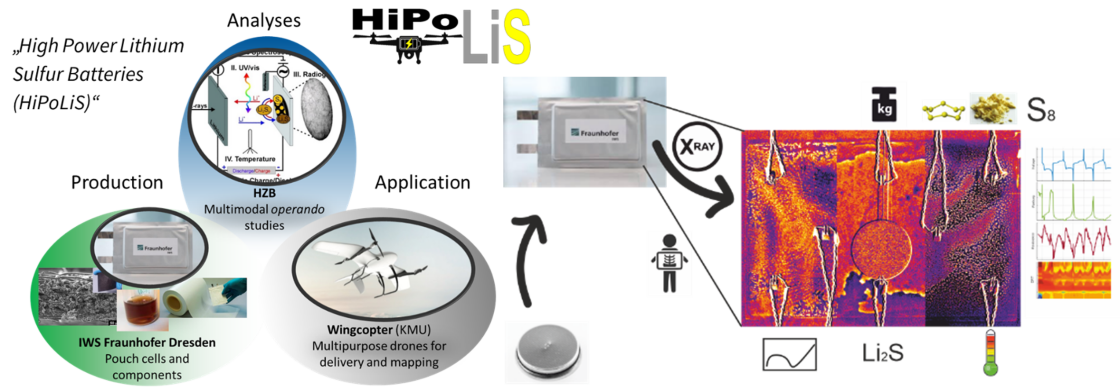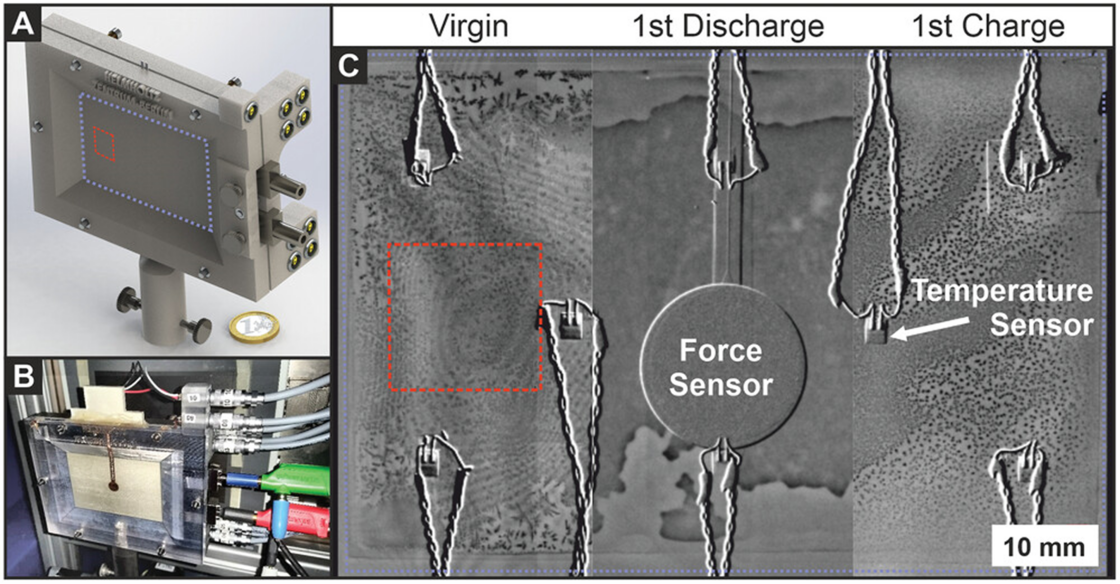Institute Electrochemical Energy Storage
HiPoLiS
Project Summary
This project aims to enhance the understanding of degradation mechanisms in Li/S batteries (coin cells and pouch cells) and to develop an advanced operando measurement setup for pouch cells, building on proven methods used for coin cells.
Challenges and Objectives
Li/S batteries offer a high theoretical gravimetric energy density of 2500 Wh/kg and feature an environmentally friendly sulfur cathode, making them a promising alternative to lithium-ion batteries. However, rapid capacity fading during cycling limits their commercial viability. To improve performance, a deeper understanding of their conversion chemistry is essential. Operando techniques provide unique insights into degradation processes during battery operation.
At Helmholtz-Zentrum Berlin (HZB), expertise in sample environments has enabled cutting-edge operando studies, revealing critical electrochemical processes. This project focuses on developing multidimensional operando approaches for real-time analysis of Li/S battery cycling.
Project Goals
In close collaboration with partners, the goal is to optimize Li/S batteries for drone applications, meeting high-performance requirements (>280 Wh/kg energy density, charge rates up to 2C). New cathode materials and electrolyte systems from Fraunhofer IWS will be analyzed and optimized using HZB’s operando techniques in an iterative feedback loop, refining materials to meet the specifications set by Wingcopter.
Research Focus
Since pouch cells dominate commercial battery applications, an operando setup tailored for this format is essential, as insights from coin cell experiments are not directly transferable. The key research tasks at HZB include:
- Advancing knowledge of degradation mechanisms in Li/S batteries (coin & pouch cells).
- Developing a novel operando measurement setup for pouch cells, leveraging experience from coin cell studies.
Partners
HZB electrochemistry, HZB imaging, TU-Berlin, TU-Dresden, Fraunhofer IWS Dresden
References
R. Müller, I. Manke, A. Hilger, N. Kardjilov, T. Boenke, F. Reuter, S. Dörfler, T. Abendroth, P. Härtel, H. Althues, S. Kaskel, S. Risse, Operando Radiography and Multimodal Analysis of Lithium–Sulfur Pouch Cells—Electrolyte Dependent Morphology Evolution at the Cathode. Adv. Energy Mater. 2022, 12, 2103432. https://doi.org/10.1002/aenm.202103432


